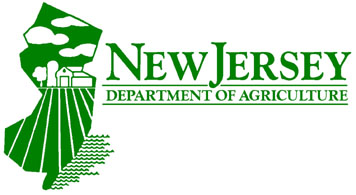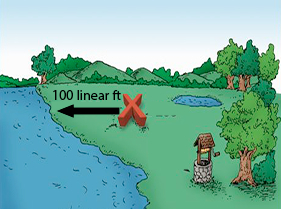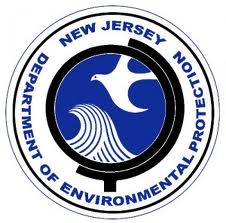View Section 6: New Jersey Rules for Composters
On-Farm Composting in New Jersey
You can choose to watch this video, read the section, or do both. "Learn More" resources are available at the bottom of the page.
Watch It:
Read it:
New Jersey Department of Agriculture 
The NJ Department of Agriculture oversees the animal waste management rules which apply to farms with livestock and farms receiving or applying manure. If you have animals in confined areas, you must control access to surface waters and manure storage areas must be at least 100 linear feet from surface waters.

Land application of manure must follow the "On-Farm Strategies to Protect Water Quality" Best Management Practices manual, which you can download by clicking here.
If an animal dies from reportable contagious diseases or bio-terrorism, you are required to report it to the State veterinarian. Bio-security protocols also must be followed.
Animal Density
To calculate animal density, it's important to understand animal units. One animal unit equals 1,000 pounds of live body weight - on an annual average basis. Animal density is the number of animal units per acre of available farmland for pasturing animals AND other land available for application of animal waste.
animal density = number of AUs / (acres of available farmland for pasturing + acres available for application of manure)
View the video below if you want to a brief walk-through of the Animal Density formula for a low density farm and a high density farm.
Depending on how many animal units are on your farm - certain rules apply to you.
- 1 to 7 AU's: A self-certified animal waste management plan (AWMP) is encouraged but not required. A certified plan is required if there is direct discharge to surface water.
- 8 to 299 AU's Low Density: A self-certified AWMP is required. File it with the Rutgers Cooperative Extension office.
- 8 to 299 AU's High Density: Required high-density AWMP using BMP manual and Field Guide Manual. Reviewed by conservation professionals.
- More than 300 AU's: Required Certified Nutrient Management Plan (CNMP) approved by Soil Conservation District (SCD) and submitted to NJDA. To be reviewed and updated annually.
Remember: when calculating animal density, anything greater than or equal to 1 is a high density farm.
It's important for you to understand these rules as well in order to be in compliance with the regulations that took effect in March 2013. What's Required?
New Jersey Department of Environmental Protection 
The New Jersey Department of Environmental Protection offers three separate regulatory paths. The path you need to follow is based on the amount of composted material you produce each year. You must understand the difference in order to pass the exam.
Path 1: Compost Operations Exempt from NJDEP Regulations
This regulation path applies to you if your farm produces LESS THAN 5,000 cubic yards of compost per year and your composting area is less than 3 acres. This path only allows on-site generated approved feedstocks.

Windrows must meet a "low-level" technology. Which means:
-
- they may not be taller than 6 feet
- the base width cannot be more than 14 feet
- piles must be separated by at least 16 feet on at least one side
- piles must be turned at least once during first 2 months, once at 4-6 months, once in the 10th month, and 3 times during a 12-18 month cycle
Path 2: Compost Operations Exempt from NJDEP Recycling Facility Permit Requirements
In order to comply with this regulatory path, composters must limit their material to no more than 10,000 cubic yards per year and the composting area must be less than 5 acres.
A low-level technology for windrows is also required - and there must be at least a 50 foot buffer to your property line.

If your farm meets these regulations then you are exempt from a permit requirement but you still must comply with the following NJDEP regulations because you are allowed to take in waste from other sites. You must report how much you’re taking in to the NJDEP and be sure to complete this compost operator course every 3 years.
It's important to note the following approved feedstocks.
Approved Feedstocks:
-
- Dry livestock manure
- Animal feed
- Leaves
- Corn stalks
- Hay
- Silage
- Other farm feedstocks, except grass clippings, that meet the definition of vegetative waste at N.J.A.C. 7:26-2.13(g)(1)(v)
NJDEP definitions (including vegetative waste)
Path 3: No Exemption from Permits and Regulations
If your farm produces more than 10,000 cubic yards of compost per year - you are not exempt from NJDEP permits and regulations. You must obtain a permit through a two-step process.
-
- County level - the farm must be added to the county solid waste management plan
- State level - submit your permit application to the NJDEP for a Class C Recycling Facility
Please be sure to understand these three regulatory paths so you can pass the exam questions.
Learn more:
- In order to stay NJ State Certified, you will need to take and pass this New Jersey exam every 3 years.
- Learn about NJDEP regulations by watching this video from Anthony Fontana of the NJ Department of Environmental Protection (Note: Always refer to most up-to-date regulations)
- Learn about NJDA animal waste regulations by watching this video from Monique Purcell of the NJ Department of Agriculture (Note: Always refer to most up-to-date regulations)
- Learn about organic systems and requirements by watching this video from Erich Bremer, Supervisor of the Organic Certification Program
- For more knowledge, please check out the Rutgers University, Office of Continuing Professional Education's, NJ Compost Operator Certificate Course
- Know the Facts: Study Guide
- Complete list of the NJDEP Rules and Regulations
- BMP Manual
- Animal Waste Management Plan
- NJDEP definitions
- State Vet
- Class C Recycling Facilities
